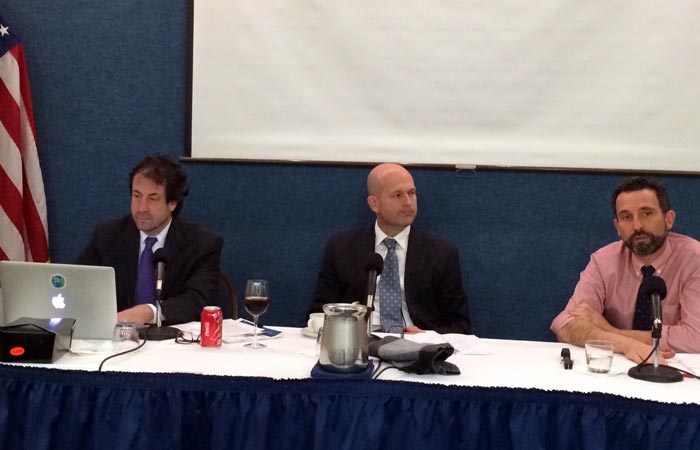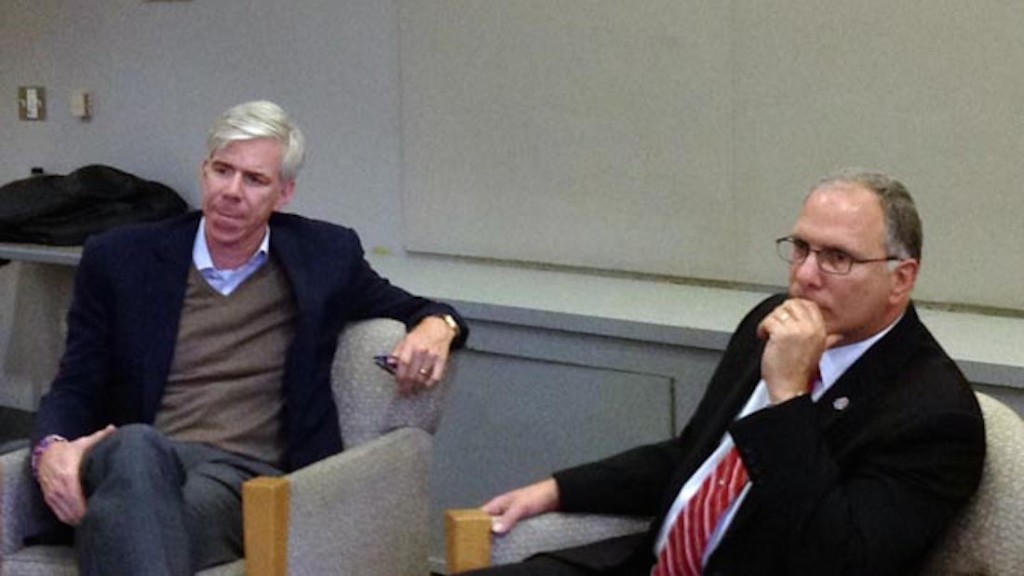With smoke still clearing from Iraq’s victory over the Islamic State group in Tikrit, Iraq’s prime minister is busy selling his post-conflict vision of his nation.
“If we don’t decentralize, the country will disintegrate,” Haider al-Abadi bluntly declared in a speech Wednesday to the Center for Strategic and International Studies.
“To me, there are no limitations to decentralization.”
Al-Abadi’s comments came at the end of his first visit to Washington since his appointment as prime minister last summer. He is seeking to secure sustained American support in the struggle against the Islamic State and beyond.
On Tuesday, President Obama pledged $200 million in humanitarian aid for Iraqis displaced by fighting with the Islamic State.
Only eight months in office, al-Abadi is keen to distance himself from his predecessor, Nouri al-Maliki, whose preferential sectarian policies, many believe, helped precipitate the current crisis with the Islamic State.
“This is not a Shiite government, it just happens to have a Shiite prime minister,” al-Abadi told the audience at the Washington think tank.
Reconciliation of fractious ethnic and sectarian divisions is key to rebuilding Iraq, reviving economic growth and attracting long-term investment, he said.
This can be achieved only by decentralizing power to the local level and transitioning from a state-dominated economy to a mixed economy, according to al-Abadi.
Al-Abadi wants to create a more federal political system, granting greater autonomy to provincial governments, in order to reverse al-Maliki’s centralization of power in Baghdad.
“We must not only win the war, but win the peace,” al-Abadi said. “Our goal is not only to liberate but also to restore a level of civilization worthy of all our people.”
The Iraqi military, Kurdish fighters and pro-Iranian militias have been battling the Islamic State, also called ISIS, since June, when its fighters swept through parts of Iraq with the assistance of local tribes disaffected with Baghdad.
Saddam Hussein’s home city of Tikrit was recaptured by Iraqi forces March 31.
“Al-Abadi has to be a cosmetic surgeon now to put the parts back together,” former Iraqi Brig. Gen. Ismael Alsodani told Medill News Service. “He has a long road ahead.”








